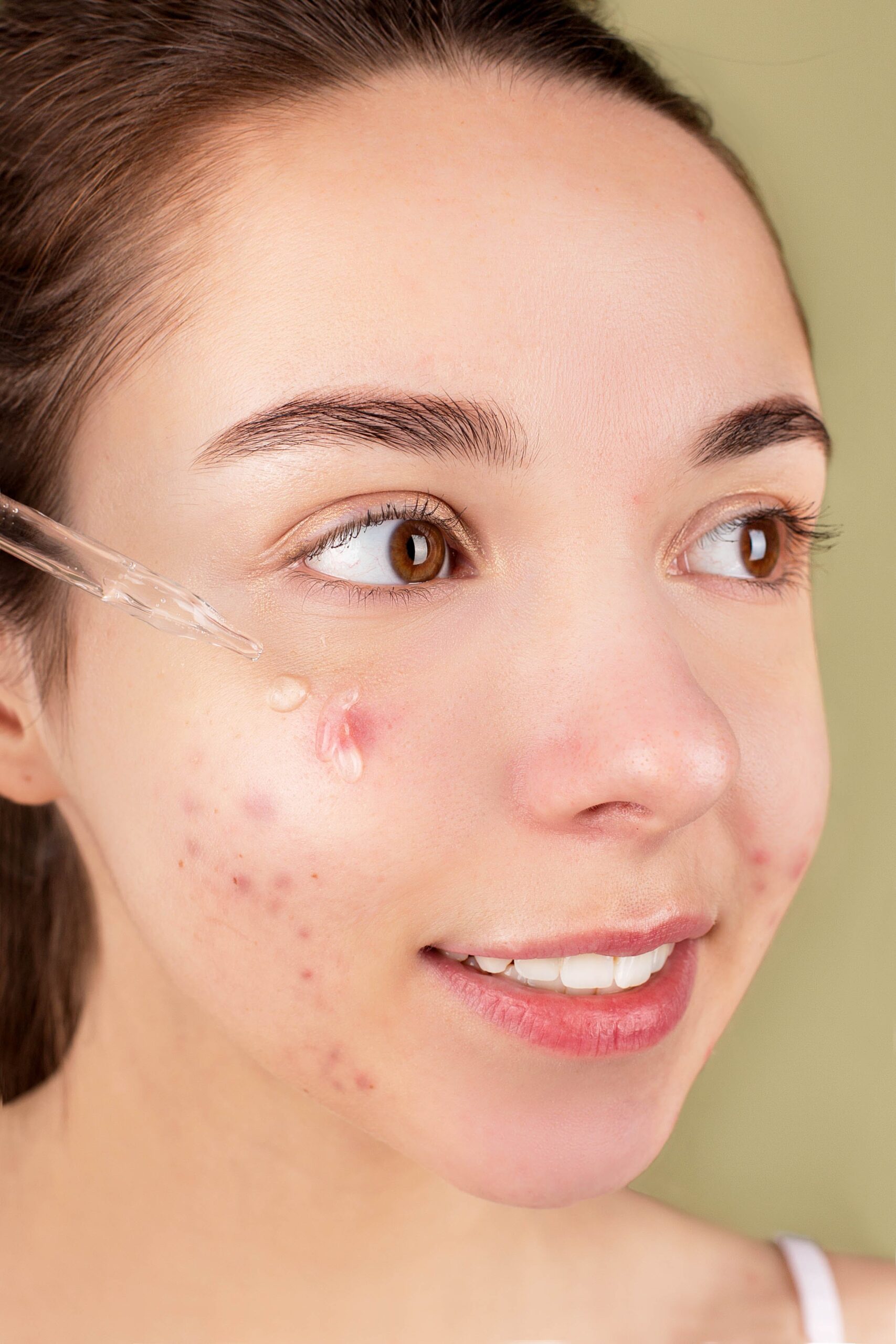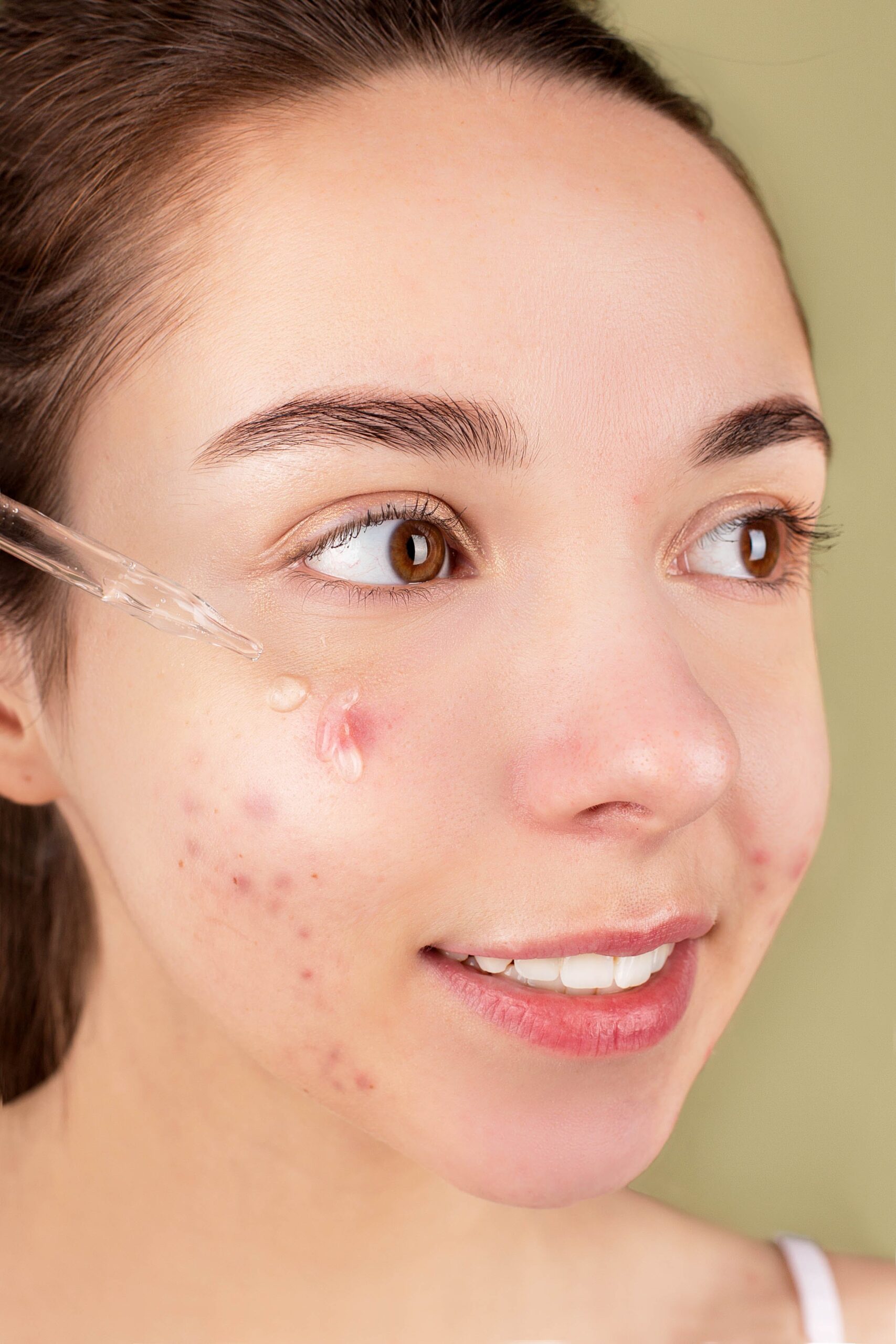Acne, a common skin condition that affects millions of individuals worldwide, can be quite the bothersome issue to deal with. This brief article will explore the causes of acne, as well as shed light on various treatment options, management techniques, prevention methods, and helpful tips on how to steer clear of this pesky problem.
Whether you are personally affected by acne or seeking knowledge for someone else, this informative piece aims to provide a comprehensive overview of this skin concern and offer guidance on how to effectively address it.

Causes of Acne
Acne, the pesky skin condition that affects many individuals, can be caused by various factors. Understanding the causes of acne is crucial in order to effectively treat, manage, and prevent breakouts. From hormonal imbalances to environmental factors, here is a comprehensive look at what contributes to the development of acne.
Hormonal Imbalance
One of the primary causes of acne is hormonal imbalance. During puberty, the surge in hormones, particularly androgens, can lead to an increase in oil production, clogged pores, and the formation of acne. Similarly, during a woman’s menstrual cycle, hormonal fluctuations can trigger breakouts. Pregnancy is another time when hormonal fluctuations can cause acne to appear or worsen. Polycystic Ovary Syndrome (PCOS), a hormonal disorder, can also contribute to the development of acne.
Excess Oil Production
Excessive oil production, also known as sebum, is another factor that can contribute to acne formation. The sebaceous glands, responsible for producing and secreting sebum, can become overactive, leading to an oily complexion. This excess oil can clog the hair follicles, creating an ideal environment for acne-causing bacteria to thrive.
Clogged Hair Follicles
When dead skin cells and excessive amounts of keratin, a protein produced by the skin, accumulate, they can clog the hair follicles. This blockage prevents the natural release of oil, leading to the formation of pimples, blackheads, and whiteheads. Additionally, inflammation of the skin can contribute to clogged hair follicles and ultimately result in acne breakouts.
Bacteria
One common bacterium associated with acne is Propionibacterium acnes. This bacterium resides naturally on our skin and feeds on the excess sebum produced by the sebaceous glands. However, when excessive sebum is present, combined with clogged pores, P. acnes can multiply rapidly, leading to inflammation and the development of acne.
Certain Medications
In some cases, acne can be a side effect of certain medications. Corticosteroids, which are commonly used to treat inflammatory conditions, can stimulate the sebaceous glands and lead to acne breakouts. Additionally, medications such as lithium and anticonvulsants have been associated with acne development.
Dietary Factors
While more research is needed to fully understand the link between diet and acne, certain dietary factors have been suggested to contribute to breakouts. High glycemic index foods, such as refined carbohydrates and sugary snacks, have been associated with increased acne severity. Consuming dairy products and chocolate has also been linked to acne development in some individuals. Additionally, a diet high in fast food and junk food may contribute to inflammation and acne formation.
Stress
Stress is known to have a significant impact on our overall health, and acne is no exception. When a person experiences stress, the body releases cortisol, a stress hormone. Elevated levels of cortisol can lead to increased inflammation in the body, including the skin, which can trigger or worsen acne breakouts.
Genetics
The role of genetics in acne development cannot be overlooked. If a person’s parents or close family members have a history of acne, they are more likely to develop the condition as well. While genetics alone do not determine if an individual will have acne, they can significantly influence an individual’s susceptibility to breakouts.
Environmental Factors
Environmental factors, such as pollution, humidity, and exposure to certain chemicals, can also contribute to acne. When the skin is exposed to pollution, toxins can clog the pores and irritate the skin, leading to acne formation. Similarly, high humidity can increase the production of sebum and exacerbate existing acne. Additionally, certain chemicals found in household products or workplace environments can irritate the skin and contribute to breakouts.
Cosmetics and Personal Care Products
While many cosmetics and personal care products are formulated to enhance our beauty, some can actually worsen acne. The use of heavy or comedogenic products, which can clog the pores, may contribute to acne development. It is important to choose non-comedogenic and oil-free products to minimize the risk of clogging the pores and aggravating existing acne.
Hormonal Imbalance
Hormonal imbalances play a significant role in acne development, particularly during specific life stages or conditions. Understanding how hormones contribute to acne can help in effectively managing breakouts.
Puberty
During puberty, hormonal fluctuations occur, leading to an increase in androgen levels. Androgens stimulate the sebaceous glands to produce more oil, leading to the development of acne. This is why many teenagers experience acne breakouts during this stage of life.
Menstrual Cycle
Hormonal changes that occur throughout the menstrual cycle can also trigger acne breakouts in some women. Just before menstruation, progesterone levels rise, leading to increased sebum production. This can result in clogged pores and the development of acne.
Pregnancy
Pregnancy causes significant hormonal changes in a woman’s body, which can often lead to acne breakouts. Fluctuating hormone levels during pregnancy can stimulate the sebaceous glands and increase oil production, thereby contributing to the development of acne.
Polycystic Ovary Syndrome (PCOS)
PCOS is a hormonal disorder that affects many women and can contribute to the development of acne. Women with PCOS may have elevated levels of androgens, leading to increased sebum production and the formation of acne. Additionally, the hormonal imbalances associated with PCOS can disrupt the menstrual cycle and contribute to the worsening of acne symptoms.
Excess Oil Production
Sebum, the oily substance produced by the sebaceous glands, is essential for protecting and moisturizing the skin. However, when there is an overproduction of sebum, it can lead to acne breakouts.
Sebaceous Glands
The sebaceous glands are responsible for producing sebum, which is released onto the skin’s surface through hair follicles. When the sebaceous glands become overactive, excess oil is produced, leading to a greasy appearance and an increased risk of acne formation.
Androgens
Androgens are a group of hormones that play a crucial role in the development of acne. Testosterone, a type of androgen, stimulates the sebaceous glands to produce sebum. When androgen levels are elevated, either due to hormonal imbalances or other factors, it can contribute to excess oil production and acne breakouts.
Sebum Production
Sebum production is a natural process that helps maintain the skin’s hydration and protection. However, when sebum is overproduced, it can mix with dead skin cells, bacteria, and other impurities, leading to clogged pores and the development of acne. The exact reasons why some individuals produce more sebum than others are still not fully understood, but hormonal factors and genetics are believed to play a role.
Clogged Hair Follicles
Clogged hair follicles are a common factor contributing to the development of acne. Understanding how these occur can help in preventing and managing breakouts.
Dead Skin Cells
As skin cells naturally shed, they can sometimes accumulate and mix with sebum, leading to the formation of a plug within the hair follicles. This plug, made up of dead skin cells and excess sebum, can clog the follicle and create an environment where bacteria can thrive, resulting in acne breakouts.
Excessive Keratin Production
Keratin is a protein that helps protect the skin and forms the structure of hair and nails. In some individuals, an overproduction of keratin can occur, leading to the formation of plugs within the hair follicles. These plugs can trap sebum and dead skin cells, contributing to the development of acne.
Skin Inflammation
Inflammation of the skin can also contribute to the clogging of hair follicles. When the skin becomes inflamed, it can lead to the production of excess sebum and the shedding of skin cells, which can then accumulate and block the follicles. Inflammation can be caused by various factors, including hormonal imbalances, environmental factors, and certain skincare products.

Bacteria
While bacteria exist naturally on the skin, certain types of bacteria can play a role in the development of acne.
Propionibacterium acnes
Propionibacterium acnes, or P. acnes, is a bacterium commonly found on the skin. Under normal circumstances, its presence does not cause any harm. However, when the sebaceous glands produce excess sebum, combined with clogged pores, P. acnes can multiply rapidly. This increase in bacteria can contribute to inflammation and the formation of acne lesions. In some cases, P. acnes can produce enzymes that break down sebum, leading to the formation of inflammatory chemicals that aggravate acne breakouts.
Certain Medications
Some medications have been associated with the development of acne. Understanding the impact of these medications can help manage acne symptoms.
Corticosteroids
Corticosteroids, including oral or topical forms, are powerful anti-inflammatory medications often prescribed to treat various conditions. However, they can also stimulate the sebaceous glands, leading to increased oil production and the development of acne. It is essential to discuss potential side effects with healthcare professionals when using corticosteroids and explore alternative treatments if necessary.
Lithium
Lithium, a medication commonly used to treat bipolar disorder, has been linked to acne development. While the exact mechanism is not fully understood, it is believed that lithium alters certain enzymes and hormone levels, leading to increased sebum production and the worsening of acne.
Anticonvulsants
Some anticonvulsant medications have also been associated with acne breakouts. This can occur due to hormonal imbalances or other changes caused by the medication. It is important to consult with a healthcare professional if acne symptoms worsen while taking any prescribed medications.

Dietary Factors
While the relationship between diet and acne is still being researched, certain dietary factors have been suggested to influence the development of acne.
High Glycemic Index Foods
Foods with a high glycemic index, such as refined carbohydrates and sugary snacks, can cause a rapid increase in blood sugar levels. This spike in blood sugar triggers a release of insulin, which can lead to increased sebum production. The excess sebum can then clog pores, contributing to acne formation. Opting for a diet rich in fruits, vegetables, whole grains, and lean proteins may help manage acne symptoms.
Dairy Products
Some studies have suggested a link between dairy consumption and acne development. It is hypothesized that certain components in dairy, such as hormones and growth factors, may contribute to increased sebum production and inflammation. While more research is needed to establish a direct cause-and-effect relationship, individuals may consider reducing their dairy intake if they notice a correlation between their acne breakouts and dairy consumption.
Chocolate
Chocolate has often been cited as a potential culprit for acne breakouts, but the relationship is still unclear. It is believed that the high sugar and fat content in some types of chocolate may contribute to inflammation and increased sebum production. However, individual reactions to chocolate may vary, and not everyone will experience acne breakouts from consuming it. Moderation and mindful consumption are key.
Fast Food and Junk Food
Consuming a diet high in fast food and junk food has been associated with worsened acne symptoms in some individuals. These foods often contain high amounts of refined carbohydrates, unhealthy fats, and artificial additives, all of which can potentially trigger inflammation and increase sebum production. Choosing a balanced diet with whole, unprocessed foods is generally beneficial for overall health and may help manage acne symptoms.
Stress
Stress can have a significant impact on our skin health, including the development and exacerbation of acne.
Cortisol Hormone
When a person experiences stress, the body releases cortisol, commonly known as the stress hormone. Elevated levels of cortisol can stimulate the sebaceous glands to produce more sebum, leading to oily skin and clogged pores. Additionally, cortisol can promote inflammation, further aggravating acne breakouts.
Increased Inflammation
Stress triggers a response in the body known as the stress response, which involves the release of inflammatory chemicals. These chemicals can increase inflammation in the body, including the skin, making acne breakouts more severe or frequent. Finding effective stress management techniques, such as exercise, meditation, or counseling, can help reduce stress levels and potentially improve acne symptoms.
Genetics
Genetics can significantly influence an individual’s likelihood of experiencing acne.
Family History
Research has shown that individuals with a family history of acne are more likely to develop the condition themselves. Genetic factors can affect the function of sebaceous glands, the level of inflammation in the body, and other factors that contribute to acne development. While genetics do not guarantee that a person will have acne, they can play a significant role in an individual’s vulnerability to breakouts.
How to Avoid Acne
While it may not be possible to completely avoid acne, there are steps individuals can take to reduce the frequency and severity of breakouts.
Maintaining a Good Skincare Routine
Maintaining a consistent and effective skincare routine is essential in preventing and managing acne. This includes cleansing the skin gently twice a day, using non-comedogenic products, and applying a moisturizer suitable for acne-prone skin. Regular exfoliation and the use of topical treatments recommended by healthcare professionals can also help keep acne at bay.
Identifying and Avoiding Triggers
Understanding what triggers acne breakouts in an individual is vital in preventing future breakouts. By keeping a skincare diary and noting any patterns or correlations between certain products, activities, or foods, individuals can identify and avoid triggers that worsen acne symptoms. This may involve avoiding certain skincare ingredients, staying away from comedogenic cosmetics, or reducing overall stress levels.
Being Mindful of Diet
While the exact relationship between diet and acne is still under investigation, adopting a healthy and balanced diet can contribute to overall skin health. Incorporating fruits and vegetables, whole grains, lean proteins, and healthy fats into daily meals can provide essential nutrients for the skin’s well-being. Additionally, individuals may consider reducing their intake of high glycemic index foods and monitoring their personal response to dairy and chocolate consumption.
Managing Stress Levels
As stress is known to exacerbate acne symptoms, finding effective stress management techniques can be beneficial. Engaging in regular exercise, practicing mindfulness or meditation, and seeking support or counseling are all ways to help manage stress. By reducing stress levels, individuals may see an improvement in their overall skin health.
Avoiding Harsh Chemicals or Irritating Products
When it comes to skincare and cosmetics, avoiding harsh chemicals and irritating ingredients is essential. These substances can strip the natural oils from the skin, disrupt the skin barrier, and potentially worsen acne symptoms. Opting for gentle cleansers, non-comedogenic products, and products specifically formulated for acne-prone skin can help minimize irritation and reduce the risk of clogged pores.
Regularly Washing and Changing Pillowcases
Pillowcases collect dirt, oil, and dead skin cells, which can contribute to acne breakouts. Regularly washing and changing pillowcases can help prevent the transfer of these impurities onto the skin during sleep. Opting for pillowcases made of breathable materials, such as cotton, can also aid in reducing the risk of acne formation.
Keeping Hair Clean and Off the Face
Hair can harbor dirt, oil, and styling products, which can transfer onto the skin and contribute to acne breakouts. Keeping hair clean, washing it regularly, and ensuring it is styled away from the face can help reduce the likelihood of clogging the pores and aggravating existing acne.
Avoiding Touching or Picking at the Face
Touching or picking at the face can introduce bacteria, dirt, and oil to the skin, exacerbating acne breakouts. It is important to resist the urge to touch the face unnecessarily, as this can lead to further inflammation and potential scarring. If necessary, individuals should use clean hands or tools when applying skincare products or addressing blemishes.
Using Oil-free and Non-comedogenic Products
To minimize the risk of clogging the pores, individuals should opt for oil-free and non-comedogenic skincare and cosmetic products. Oil-free formulations do not contain additional oils that could contribute to excess sebum production. Non-comedogenic products are specifically designed to not clog the pores, reducing the likelihood of acne development.
Seeking Professional Help
If acne symptoms persist or worsen despite regular skincare and lifestyle adjustments, individuals should consider seeking professional help. Dermatologists and healthcare professionals specializing in skin health can provide personalized recommendations, prescribe topical or oral medications if necessary, and offer guidance on managing and preventing acne.
In conclusion, acne is a multifactorial skin condition with various causes and triggers. From hormonal imbalances and excess oil production to clogged hair follicles and bacteria, there are numerous factors that contribute to the development of acne. Understanding the causes of acne is essential in effectively managing and preventing breakouts. By adopting a comprehensive approach that includes maintaining a good skincare routine, identifying triggers, being mindful of diet, managing stress levels, avoiding harsh chemicals, and seeking professional help when needed, individuals can improve their skin health and minimize the impact of acne on their lives.
Another article covers embarrassing health conditions here, which explains the common characteristics of Scabies.

